Skin Analysis Equipment: 5 Essentials for Medical & Aesthetic Institutions
Introduction:
In an era where precision-driven aesthetics and data compliance define industry standards, selecting the right skin analysis equipment has become a critical strategic decision for medical spas, clinics, and dermatology practices. This guide distills essential criteria, real-world case studies, and actionable insights to empower your procurement process.
1.Core Selection Criteria: Technical Specifications & Applications
1.1Skin Analysis Equipment Imaging Technology
|
Technology |
Functionality |
Use Cases |
|
Multispectral Imaging |
Penetrates epidermis to analyze pigmentation, vasculature, and pores |
Melasma diagnosis, acne grading, sensitive skin assessment |
|
3D Skin Modeling |
Quantifies wrinkle depth, roughness, and skin laxity |
Anti-aging treatment planning, treatment outcome tracking |
|
UV Fluorescence |
Detects early-stage skin cancer and photoaging |
High-risk patient screening, sunscreen protocol design |
|
Narrowband Imaging (NBI) |
Enhances vascular contrast for epidermal-free visualization |
Rosacea, angioma, and telangiectasia treatment planning |
Best Practice: A combination of multispectral imaging and 3D modeling professional skin analysis machine covers over 80% of clinical needs. Opt for established brands like VISIA and IMOREME when on a budget.
1.2 Skin Analysis Equipment AI Algorithm Capabilities
Key Features: Automatically identifies acne grades (GAGS scale), pigment types (e.g., melasma vs. freckles), and wrinkle counts (FDA wrinkle scores). Generates treatment protocols from million-case databases (e.g., "IPL + PicoSure for staged pigment correction").
Validation: Skin Analysis Equipment Algorithms must undergo independent clinical validation with ≥100,000 skin datasets.
1.3 Scalability
Probe Compatibility: Supports facial/body/scalp mapping (e.g., stretch mark analysis with body probes).
System Integration: Open API for CRM integration (auto-generate branded PDF reports).
Research Readiness: DICOM skin analysis equipment export for academic collaborations.
1.4 Skin Analysis Equipment Compliance & Certifications
|
Device Type |
Required Certifications |
Risk Notes |
|
Medical-Grade (e.g., VISIA, IMOREME) |
FDA 510(k)/NMPA Class III |
Unauthorized use in non-medical settings prohibited |
|
Consumer-Grade |
CE-EMC/ISO 13485 |
"Diagnosis" and "treatment" claims strictly forbidden |
Advantage: Dual-certified (medical + ISO) professional skin analysis machine ensure compliance flexibility.
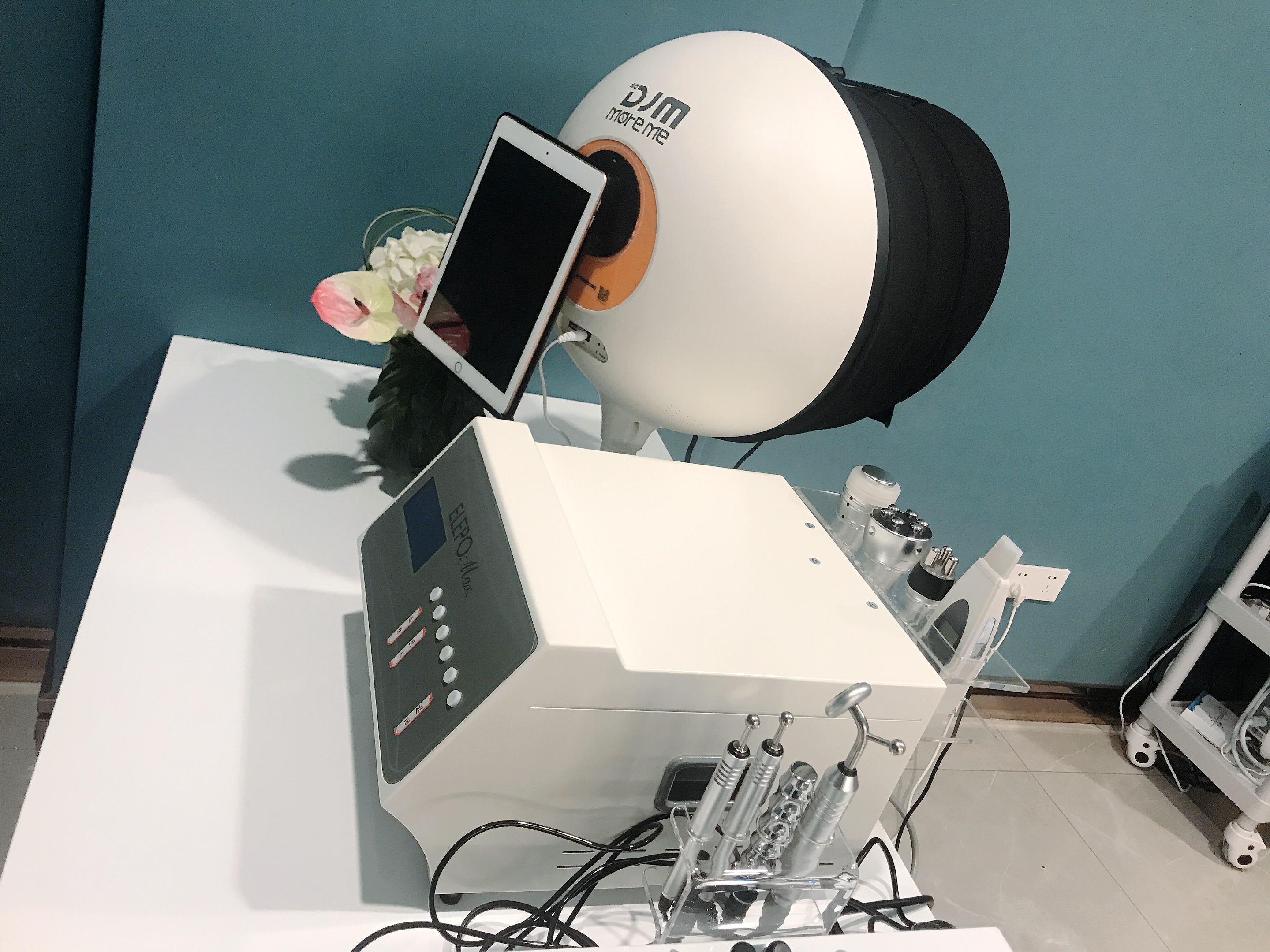
2. Skin Analysis Machine Tailored Strategies for Different Institutions
2.1 Comprehensive Aesthetic Hospitals
|
Multispectral Imaging |
3D Modeling |
AI Diagnosis |
|
Canfield VISIA |
3DMD |
DermTech |
Eg:Mayo Clinic uses skin analysis machine' VISIA+3DMD 'combination to quantify scar repair results with 3D data, results published in JAMA Dermatology
Selection Tips:Prioritize HL7/FHIR medical data standards for EHR integration.Choose FDA/CE dual-certified skin analysis machine brands.
2.2MedSpas & Clinics
|
Portable Multispectral |
Skin Analysis Machine |
|
Dermalogica SkinScope |
CureSkin Pro |
Eg:The Harley Street Clinic, a UK chain of clinics, uses the SkinScope+HydraFacial combination to automatically generate a "microdermification + antioxidant introduction" package after testing, which has increased client conversion rates by 30%
Selection Tips:Look for free CME-certified training (e.g., Dermalogica).Ensure HIPAA-compliant data transfer.
2.3Premium Customized Clinics
|
Genetic Testing |
Metabolic Analysis |
VR Simulation |
|
23andMe |
DermaSensor (Switzerland) |
Virtue RF (Israel) |
Eg:The Clinic, a high-end clinic in Dubai, uses the combination of 23 and Me+Virtue RF professional skin analysis machine to launch a personalized anti-aging program with a unit price of over $5,000 and a repeat rate of 45%.
Selection Tips:GDPR-compliant data security. Multilingual report templates (e.g., Arabic/Russian).
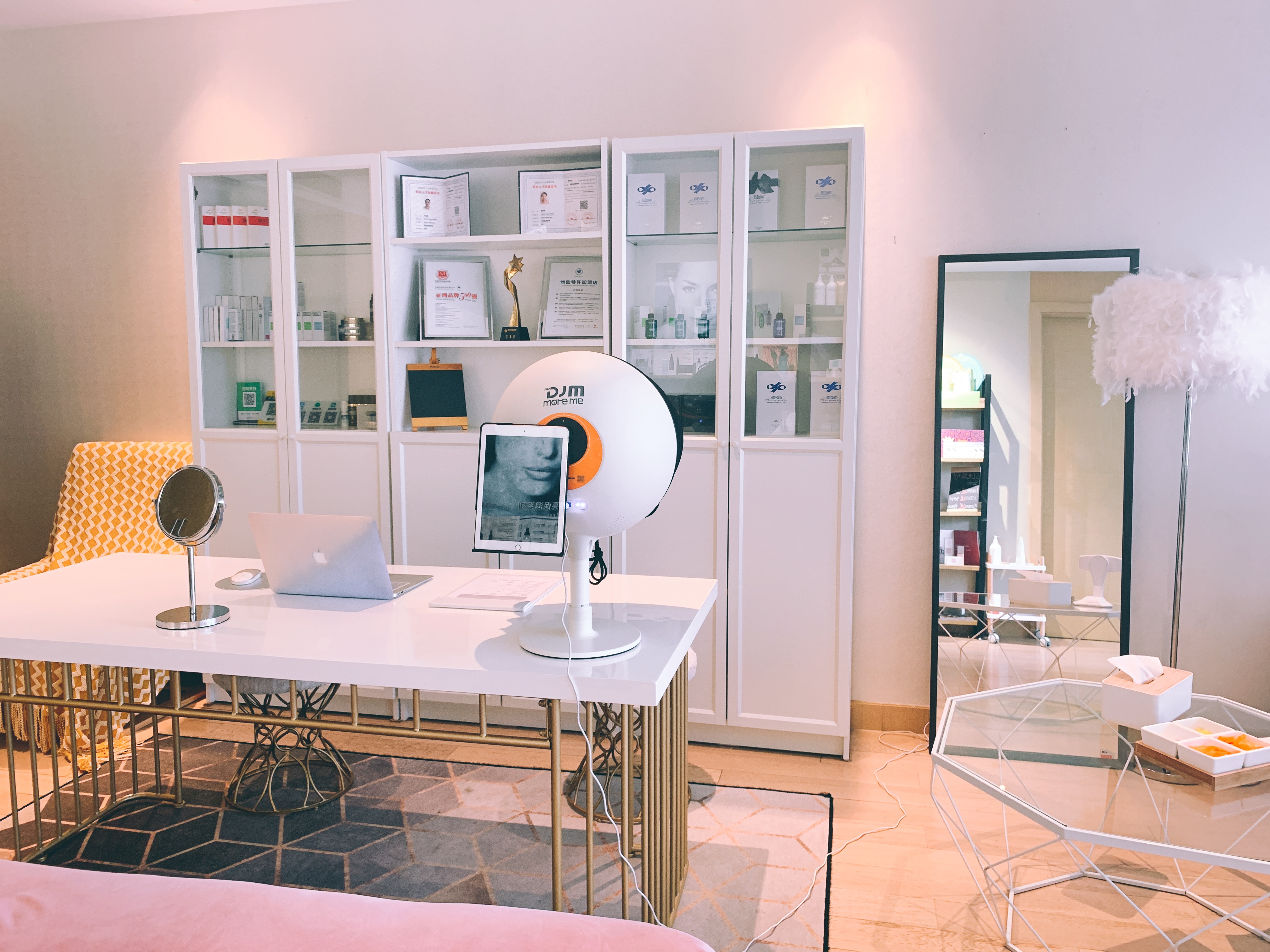
3.Avoiding Common Pitfalls
3.1 Pitfall: "Influencer Device" Syndrome
Case: US chain LaserAway spent $120k on the "SpaceAge HyperScanner," which required 3 operators and had a 70% idle rate.
Solution:
Select FDA-cleared professional skin analysis machines devices with ≥100 clinical studies(e.g., VISIA with 500+ publications,IMOREME uses 800W + clinical data, 360 skin solutions, and performs AI analysis from the seven dimensions of skin problems)
Demand 2-week free trials.
3.2Pitfall: Poor Data Interpretation
UK clinic The Skin & Beauty Lab faced 60% client complaints due to jargon-heavy reports (e.g., "MMP-1 matrix metalloproteinase").
Solution:
Choose dual-report systems for skin analysis equipment.(clinician + patient-friendly versions).
Multilingual patient education resources.
3.3Hidden Maintenance Costs
Canadian clinic VitalSkin paid $18k/year in unexpected software fees, exceeding their budget by 40%.According to Gartner, hidden costs for medical devices account for an average of 35 percent of life cycle costs and need to be measured through the TCO (Total Cost of Ownership) model prior to purchase.
Solution:
Negotiate fixed maintenance fees for your skin analysis machine. (≤8% of total cost).
Opt for open-source software (e.g., Optimal Image).
4.Future Trends
4.1Smart Treatment Ecosystems
With the deep integration of AI, the Internet of Things and medical imaging technology, skin analysis equipment is evolving from an independent tool to a core hub of the diagnosis and treatment ecology. For example, the skin analysis equipment AI system launched by Shenzhen DJM company can accurately identify the distribution and texture of subcutaneous fillings through the combination of high-frequency ultrasound imaging and AI algorithms, and automatically generate laser treatment parameters to achieve seamless "detection-diagnose-treatment". In the future, device linkage will pay more attention to "dynamic optimization". For example, skin status data can be returned in real time during treatment, and the AI system can dynamically adjust energy parameters to reduce manual intervention errors.
4.2Telemedicine Expansion
The combination of portable professional skin analysis machine and cloud-based databases is reshaping the medical beauty service model. The "Ruiying Cloud ++" system of Mindray Medical has realized cross-regional ultrasonic remote consultation, and the diagnostic capability of Shenzhen Top Three hospitals has been covered to Xinjiang primary medical institutions through 5G technology. The trend indicates that future telemedicine will place more emphasis on "total course management". Patients regularly upload skin data through home devices, and cloud AI continuously tracks changes, automatically warns of abnormalities and recommends return visits, forming a closed-loop service of "home monitoring - cloud analysis - offline intervention".
4.3Sustainable Design
EcoDerma’s skin analysis equipment biodegradable probes reduce carbon footprints by 60%, aligning with EU’s Green Deal and global sustainability goals.
Conclusion:
The future of medical aesthetics lies in equipment that balances clinical excellence, patient-centricity, and operational efficiency. By prioritizing these five essentials—technology, compliance,scalability, practicality, and sustainability—your institution can deliver superior outcomes while staying ahead in a competitive global market.
Compared with the medical beauty industry, IMOREME is highly recommended to choose a cost-effective and long-lasting skin analysis equipment.
Table of Contents
Related information
How can we help you?
Have specific questions or requests? Fill out our inquiry form, and our dedicated team will get back to you promptly. Your inquiries are important to us, and we are committed to providing comprehensive and personalized responses tailored to your needs.


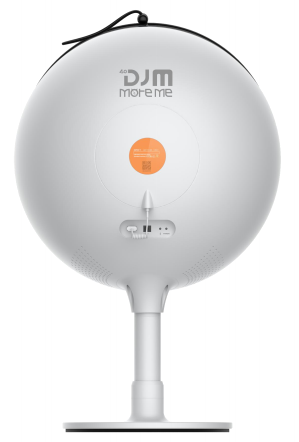
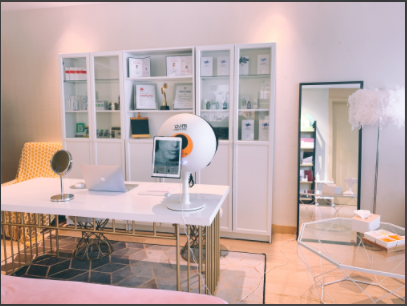
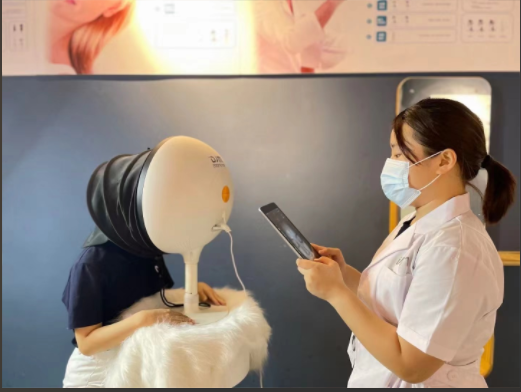
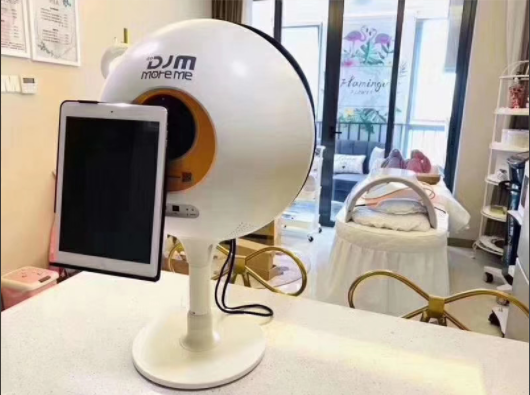
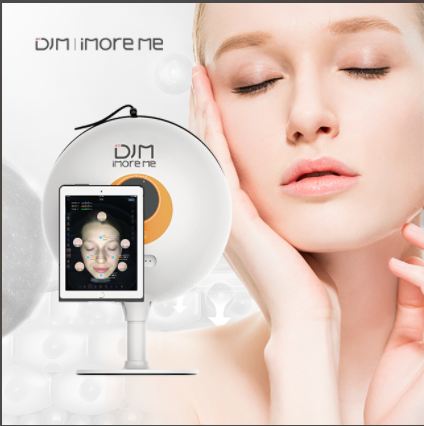
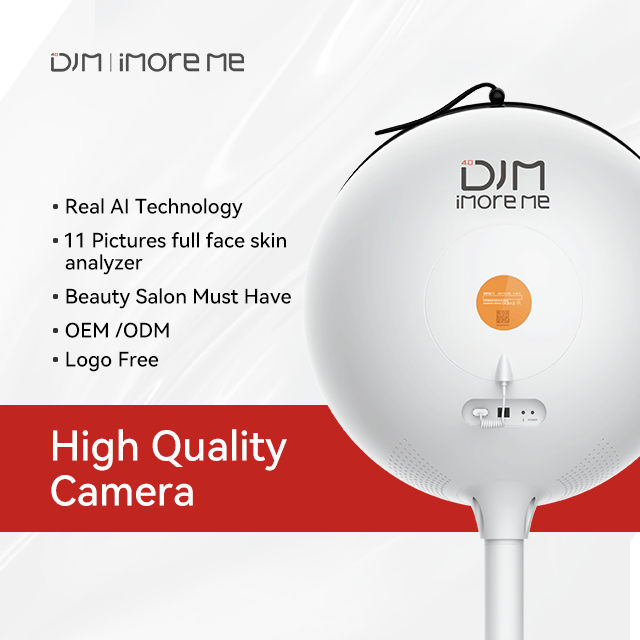
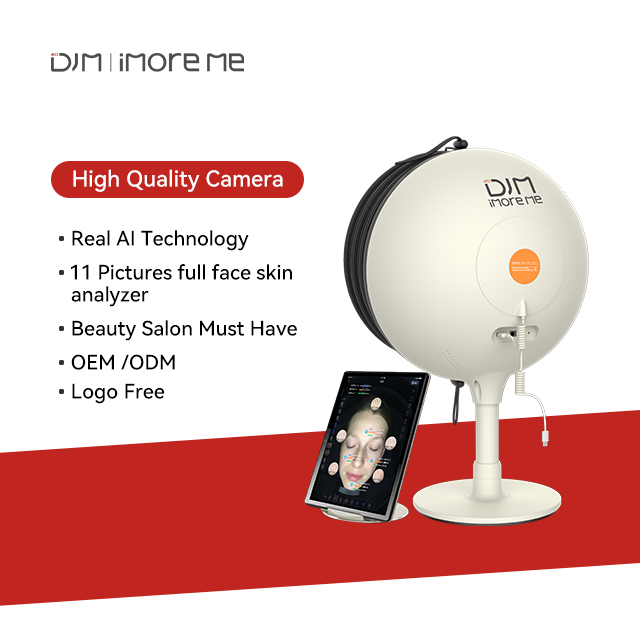
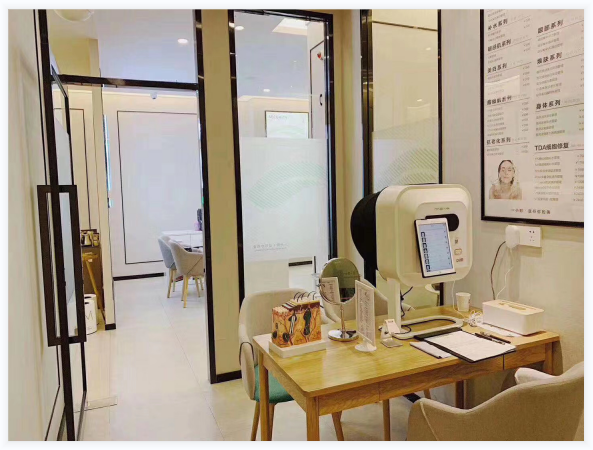


 Reach out to us today!Whether you are preparing to start your own
business in the beauty industry, are ready to upgrade your
equipment, or are just interested in our products,Contact us
today, and let’s explore how we can partner to achieve your goals
and drive your success to new heights!
Reach out to us today!Whether you are preparing to start your own
business in the beauty industry, are ready to upgrade your
equipment, or are just interested in our products,Contact us
today, and let’s explore how we can partner to achieve your goals
and drive your success to new heights!
